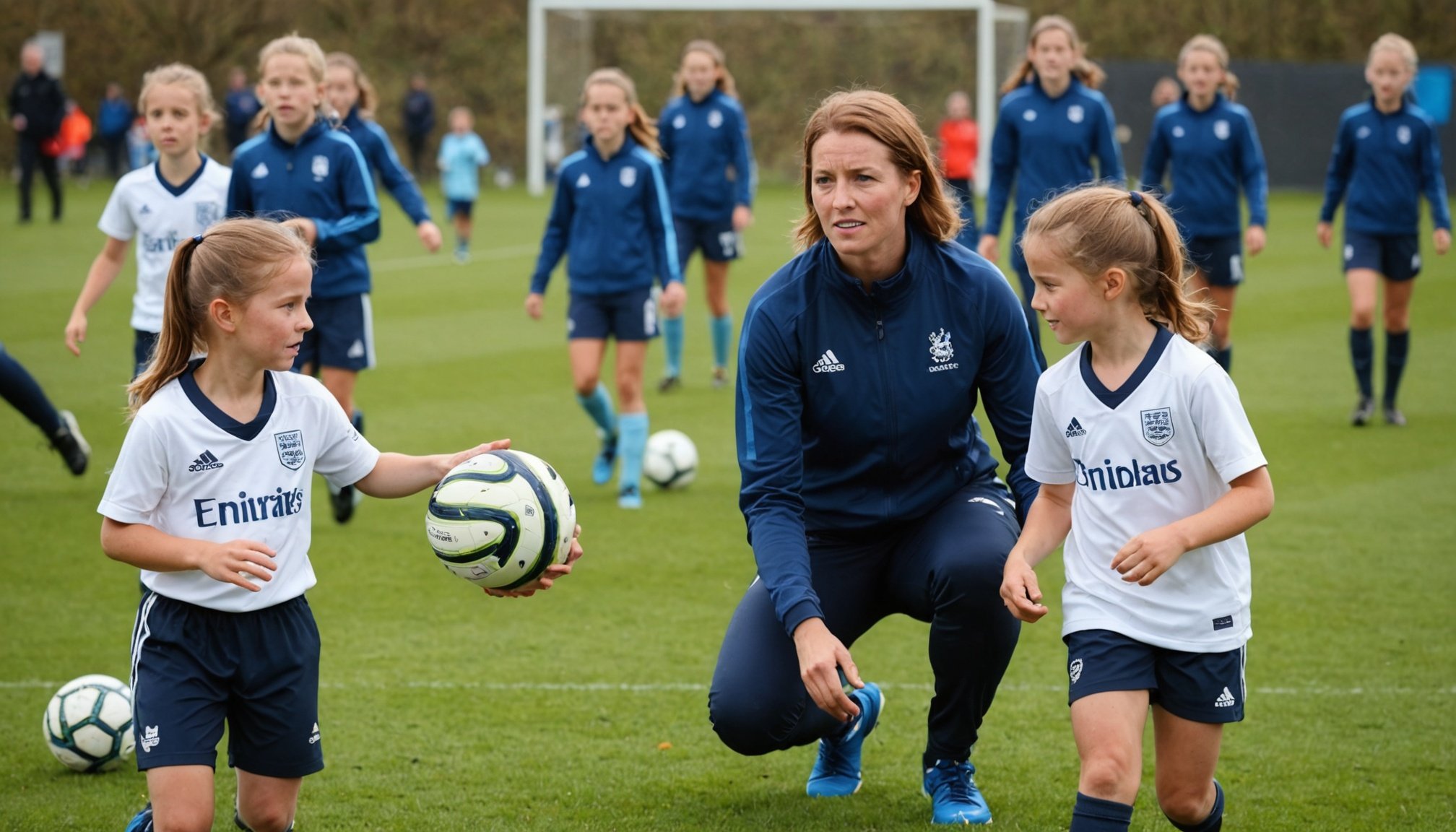The landscape of sports in the UK is evolving, and at the heart of this change is the empowerment of women in athletics. As we navigate through the complexities of gender and equality in sports, it becomes evident that promoting women’s sports is not just a matter of fairness; it’s a vital step toward inspiring young girls to engage in physical activities and pursue their dreams. This article delves into the significance of women’s sports, the challenges they face, and the profound impact that increased visibility and support can have on future generations.
The Current State of Women’s Sports in the UK
Women’s sports have seen significant advancements in the UK over recent years. However, despite these strides, they still face numerous challenges. Participation rates among female athletes have risen, with more girls engaging in various sports compared to previous decades. Notably, events such as the Women’s Super League in football have gained traction, showcasing talented women on a platform that draws attention and admiration.
This might interest you : What is the significance of diversity and inclusion in UK sports programs?
Yet, the coverage in the media often pales in comparison to that of men’s events. This disparity can discourage potential young athletes from participating. When people do not see women like them represented in the media, they may feel alienated or believe that sports are not for them. It’s crucial, therefore, to rectify this imbalance by promoting female talent and ensuring that their achievements receive the recognition they deserve.
Moreover, the societal perception of women in sports remains mixed. While many celebrate female athletes, there is still a tendency to focus on their appearances rather than their skills. This focus can undermine the hard work and dedication that these athletes embody. A shift in narrative is necessary, emphasizing the physical prowess and achievements of women in sports rather than superficial aspects.
Topic to read : Exploring Cutting-Edge Sports Science Innovations Benefiting UK Athletes Today
Importantly, grassroots initiatives play a significant role in changing the narrative. Programs aimed at increasing participation in sports among young girls can lead to a more inclusive environment. These initiatives not only promote physical health but also foster teamwork and resilience—qualities that are invaluable in all areas of life. By focusing on equality and providing equal opportunities, we can create a generation of empowered female athletes who inspire others to follow suit.
The Impact of Media Representation
Media representation of women’s sports is a powerful tool that can shape perceptions and influence participation rates. When female athletes are visible, it sends a strong message to young girls that they too can excel in sports. This visibility is crucial for challenging stereotypes and breaking down barriers that often discourage women from engaging in physical activities.
The role of the media in promoting women’s sports extends beyond mere coverage; it encompasses the narratives we tell. Positive stories about female athletes can inspire young girls to dream bigger and strive for success in sports and beyond. Documentaries, interviews, and social media campaigns featuring women can highlight their struggles, triumphs, and unique journeys, making it relatable for aspiring athletes.
Furthermore, when the media highlights achievements in women’s sports, it can lead to increased investment and sponsorships. Support from brands can elevate the visibility of women’s events, leading to greater participation and improved facilities. For example, broadcasting more women’s football matches on mainstream channels can attract new fans and potentially increase attendance at live events. This ripple effect is essential for creating a sustainable ecosystem for women in sports.
However, it’s imperative to demand more equitable coverage. The disparity in airtime and resources devoted to women’s versus men’s sports is stark. Advocating for balanced reporting not only promotes equality but also encourages young female athletes to pursue their passions without the overshadowing pressure of gender bias. As media continues to evolve, it holds a unique power to shape the future of women’s sports and, in turn, empower future generations of athletes.
Encouraging Participation Through Community Support
Community support plays a pivotal role in encouraging women’s sports. Local clubs and organizations can create an inclusive environment that nurtures female athletes from a young age. Such settings provide a platform where girls can engage in sports without fear of judgment or discrimination. Establishing all-female teams or leagues can help build confidence and foster a sense of belonging.
Moreover, mentorship programs are essential for supporting young girls interested in pursuing athletics. By connecting them with established female athletes, these programs can provide guidance, inspiration, and the assurance that success is possible. Mentors can share their experiences, offering valuable insights into navigating the challenges that often accompany a career in sports.
Additionally, community events that celebrate local female athletes can enhance visibility and encourage participation. Hosting competitions, workshops, and festivals focused on women’s sports can draw attention to the talent within the community and inspire young girls to get involved. Promoting these events through local media ensures that they reach the target audience, thereby attracting more participants and supporters.
Furthermore, local businesses and schools can join forces to promote equality in sports. Collaborations can lead to sponsorships, funding for facilities, and resources that allow female athletes to thrive. By fostering an environment of support, we can cultivate a culture that values women’s sports and encourages everyone to participate, regardless of gender. Empowerment at the grassroots level is essential for creating a sustainable future for women’s sports.
The Role of Schools and Education
Schools serve as the foundational ground for fostering a love for sports among children and young adults. By promoting inclusive sports programs, educational institutions can play a significant role in enhancing participation among girls. Providing equal access to sports facilities, coaching, and competitive opportunities is vital for ensuring that all students can engage in physical activity.
Curriculum development should also reflect a commitment to equality in sports. Introducing programs that empower female athletes and encourage girls to participate in traditionally male-dominated activities can break down barriers. Schools can organize events showcasing girls’ sports, allowing them to shine and gain recognition for their efforts.
Moreover, incorporating physical education classes that emphasize the importance of teamwork, self-esteem, and resilience can cultivate a positive attitude towards sports. Teaching young girls about the benefits of physical fitness, including health and mental well-being, can motivate them to pursue athletics as a lifelong passion.
Peer support is another critical factor in encouraging girls’ participation in sports. Schools can create environments that celebrate and showcase female talent, encouraging students to cheer for one another and recognize each other’s achievements. When girls see their classmates excelling in sports, it fosters a sense of community and supports a collective effort toward equality in athletics.
Furthermore, partnerships between schools and local sports clubs can provide additional support. By facilitating access to training and competitions outside of school, these collaborations can help young girls develop their skills and gain experience in a competitive setting. Ultimately, education plays a crucial role in instilling a culture of inclusivity and support, empowering the next generation of female athletes.
In conclusion, promoting women’s sports in the UK is essential for empowering future generations. By addressing current challenges, enhancing media representation, encouraging community involvement, and fostering supportive educational environments, we can create a culture that values and celebrates female athletes. As we continue to advocate for gender equality in sports, it is crucial to remember that every effort counts. Each stride taken towards inclusivity not only benefits the women in sports today but also paves the way for young girls to chase their dreams in the future. Together, we can support a vibrant landscape of athletics where everyone has the opportunity to thrive.











